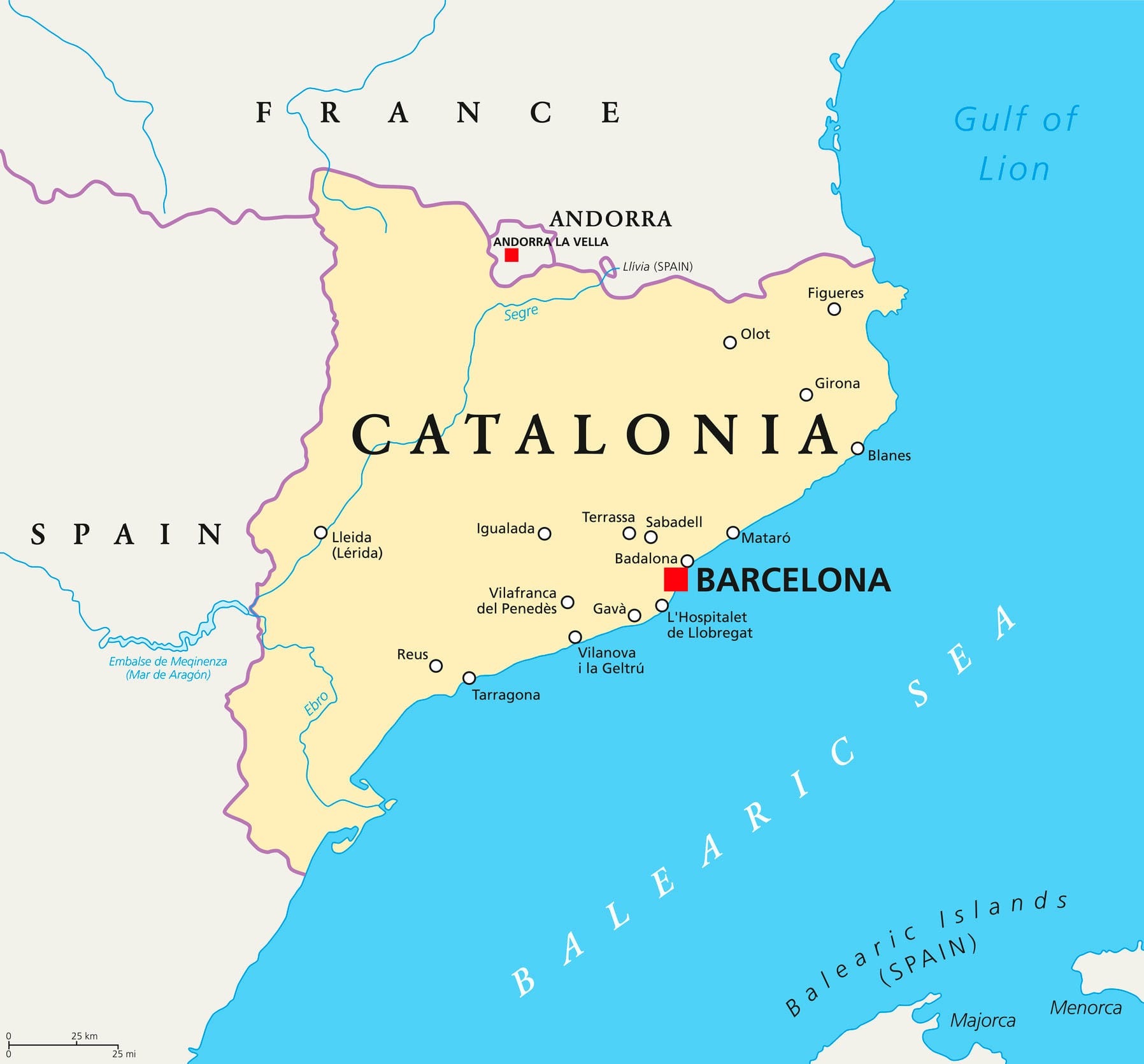
By now, most Australians will be aware that something is going on in Catalonia.
Even if you have not been following this story since 2003, when the current dispute started brewing, you will probably have seen the images of the October 1 clashes between police and protesters.
Despite the waning media attention in this country since then, you may also have seen the 8 October anti-independence demonstration in Barcelona, and even may have seen or heard something about the unofficial Catalan Government declaration of independence, and the Spanish Government response.
In the past few weeks, I have had plenty of conversations with interested Australians, and I have lost count of the radio and TV interviews that I´ve given. From these interactions, what has surprised me the most is not the lack of general knowledge, which is to be expected, since neither Spain nor Catalonia are on the radar of most Australians, other than as a tourist destination, but rather the many misconceptions around what it is that is actually going on in Catalonia.
Here are a few of them:
This is not an “emerging confrontation”
This is how the dispute was described in a pamphlet I read a couple of days ago. In fact, you could say that it has existed since Spain´s formation at the end of the 15th Century. The two main pieces of the Spanish puzzle were the kingdoms of Castille and Aragon, which included Catalonia. They have been debating Spain’s governance ever since with varying degrees of intensity over the years.
This is not a revolution
Forget any romantic ideas you may have about a new beginning, or a radical new way of doing things. Whatever happens, Catalonia –as an independent state or as part of Spain– will be a liberal democracy within a Capitalist market economy. What is at stake is where the border will be, and whether Catalonia’s head of state will be a monarch or the president of a republic.

It is not a left versus right confrontation
There are many who think this is a confrontation between conservative Spaniards and left wing Catalans. The fact is that in the pro-independence camp there are three main parties: the conservative Catalan Democratic Party, the social democrat Republican Left of Catalonia, and the anti-capitalist United Popular Candidature. In turn, those against independence include conservative Popular Party (currently in power in Spain), social democrat PSOE, and centre-right Citizens.
It is not a nationalists versus non-nationalists confrontation
In fact, perhaps the best way to describe the issue is a clash of nationalisms: Catalan nationalism vs Spanish nationalism (which leaves a large proportion of non-nationalistic Spaniards, like myself, wondering why we are spending so much energy and time on it).
It is not a confrontation between Catalans and Spaniards
While it is true that the majority of Spaniards outside Catalonia do not sympathise with Catalan independentism, it is also true that many Catalans do not want independence and see themselves as both Spanish and Catalan.
Neither side holds a clear majority
Especially after the October 1 events and the heavy-handed police interventions, many Australians have concluded that the huge majority of Catalans want independence and Spanish central government has sent the police to stop the Catalan nonsense. I wish that were the case, as the issue would be much easier to resolve. The truth, however, is that neither side has a clear majority at present. Until recently, support for independence has been between 30 per cent and 35 per cent of Catalans, and it is only around 50 per cent as I write this.
Over the following weeks and months, the Australian media will continue to cover the situation in Catalonia. I hope that this information provides some much needed background to enable a better understanding of what is undoubtedly a very complex cultural and political situation.





